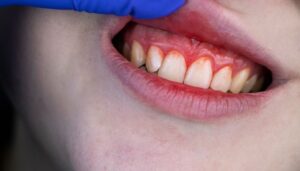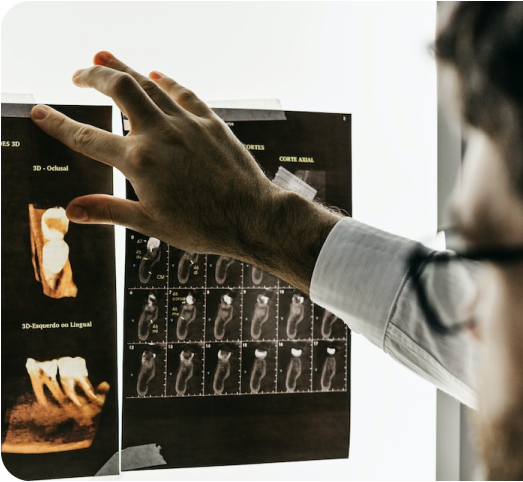
Can Spicy Food Cause Gum Inflammation? How to Protect Your Oral Health
Spicy foods are a beloved part of many diets, especially in Lewisville, Texas, where diverse cuisines thrive. While they add excitement to meals, they can also impact your gum health. If you’ve ever wondered, “Can spicy food cause gum recession?” or “Why do my gums swell after eating spicy food?”, this guide explains the effects and how to enjoy heat without harming your gums. How Spicy Foods Affect Your Gums 1. Can Spicy Food Cause Gum Inflammation? Capsaicin, the compound that gives spicy foods their heat, can irritate soft gum tissues. If you already have gingivitis or periodontitis, spicy foods may worsen inflammation, leading to redness and tenderness. 2. Burned My Gums Eating Hot Food – What Happens? Extremely hot or spicy foods can cause a burning sensation, leading to temporary burnt gums around teeth. This can make gums more sensitive to temperature and touch. 3. Can Spicy Food Cause Gum Recession? Chronic irritation from spicy foods may contribute to gum recession over time, especially if combined with aggressive brushing or poor oral hygiene. 4. Swollen Gums After Eating Spicy Food? Here’s Why Spicy foods can trigger swelling due to increased blood flow and irritation. If your gums swell after eating spicy food, it could be a sign of sensitivity or underlying gum disease. 5. Does Spicy Food Cause Dry Mouth? Spicy foods may reduce saliva production, leading to dry mouth. Since saliva helps wash away bacteria, less saliva can increase plaque buildup and gum disease risk. How to Protect Your Gums When Eating Spicy Foods 1. Stay Hydrated to Prevent Irritation Drinking water helps neutralize acids and keeps your mouth moist, reducing gum sensitivity. 2. Maintain Strong Oral Hygiene Brush twice daily with a soft-bristled toothbrush, floss regularly, and use an antimicrobial mouthwash to minimize irritation. 3. Eat Spicy Foods in Moderation Limit extremely spicy meals to avoid gum inflammation. Opt for milder versions when possible. 4. Choose Less Acidic Spicy Foods Some spicy foods (like vinegar-based hot sauces) are more acidic and irritating. Pick alternatives with fewer harsh ingredients. 5. Soothe Irritated Gums Naturally If you experience burnt gums from hot food, rinse with warm salt water to reduce swelling and discomfort. When to See a Dentist in Lewisville If you frequently experience swollen gums after eating spicy food or persistent discomfort, visit your Lewisville dentist for a check-up. Early intervention prevents long-term damage. Final Thoughts Spicy foods can be enjoyed safely with the right precautions. By staying hydrated, practicing good oral care, and choosing gentler options, you can protect your gums while savoring bold flavors. Need a dental check-up? Schedule an appointment with your Lewisville dentist today to keep your gums healthy!






